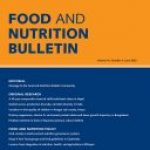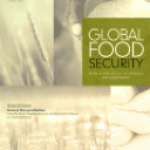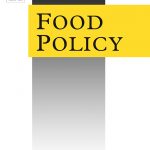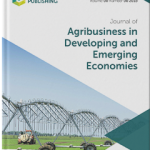Author: Prabhu Pingali

Market Access, Production Diversity, and Diet Diversity: Evidence From India
Abstract Background: Recent literature, largely from Africa, shows mixed effects of own-production on diet diversity. However, the role of own-production, relative to markets, in influencing food consumption becomes more pronounced as market integration increases. Objective: This paper investigates the relative importance of two factors –...

Pandemics and food systems – towards a proactive food safety approach to disease prevention & management
Abstract Recent large-scale pandemics such as the covid19, H1N1, Swine flu, Ebola and the Nipah virus, which impacted human health and livelihoods, have come about due to inadequate food systems safeguards to detect, trace and eliminate threats arising from zoonotic diseases. Such diseases are transmitted...

Are Women in Rural India Really Consuming a Less Diverse Diet?
Abstract Background: It is widely considered that women have less diverse diets than other household members. However, it has been challenging to establish this empirically since women’s diet diversity is measured differently from that of other household members. Objective: In this article, we compare women’s...

Exploring Aflatoxin Contamination and Household-Level Exposure Risk in Diverse Indian Food Systems
Abstract The present study sought to identify household risk factors associated with aflatoxin contamination within and across diverse Indian food systems and to evaluate their utility in risk modeling. Samples (n = 595) of cereals, pulses, and oil seeds were collected from 160 households across...

India’s Rural Transformation and Rising Obesity Burden
Abstract While obesity across rural India has doubled in the last decade, research explaining such an unprecedented change is sparse. This paper shows that the rise in the incidence of rural obesity is associated with the process of structural transformation, especially within rural spaces. As...

Ground Truthing the Cost of Achieving the EAT Lancet Recommended Diets: Evidence from Rural India
Abstract Read a policy brief based on this study. In this paper, we quantify the divergence in the cost of current diets as compared to EAT Lancet recommendations at the subnational-level in India. We use primary data on food prices and household food purchases, and...

Effects of Short Birth Spacing on Birth-Order Differences in Child Stunting: Evidence from India
Abstract Read a policy brief based on this study. Do firstborn children have a height advantage? Empirical findings have found mostly that, yes, second or higher-order children often lag behind firstborns in height outcomes, especially in developing countries. However, empirical investigations of birth-order effects on...

Spatiotemporal Assessment of Post-Harvest Mycotoxin Contamination in Rural North Indian Food Systems
Abstract The spatiotemporal trends in aflatoxin B1 (AFB1), fumonisin B1 (FB1), and deoxynivalenol (DON) accumulation were analyzed in a range of food commodities (maize, groundnut, pearl millet, rice, and wheat) in village settings in Unnao, Uttar Pradesh, India. Samples (n = 1549) were collected across six communities and six time points spanning...

Seasonal Time Trade-Offs and Nutrition Outcomes for Women in Agriculture: Evidence from Rural India
Abstract Read a policy brief based on this study. Women in agriculture are involved in agricultural activities and are solely responsible for household-level unpaid work. They face severe time trade-offs between agricultural and household activities across crop seasons. Recent literature suggests that these time trade-offs...

Shortage of Pulses in India: Understanding How Markets Incentivize Supply Response
Abstract Purpose This paper aims to understand the significant farm and market-level factors that incentivize the adoption and marketing of pulses influencing its supply response to changing demand. Design/methodology/approach The authors first use a modified Nerlovian supply response model using secondary data to identify the...

